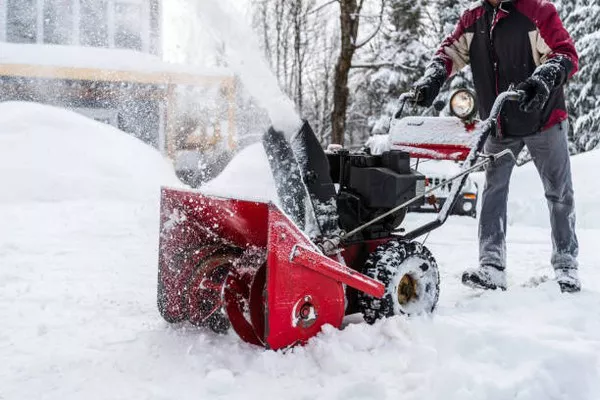As winter blankets the landscape in a glistening layer of snow, homeowners across the country turn to various tools to keep their driveways and walkways clear. Among these tools, electric snow blowers have gained popularity for their convenience, ease of use, and environmentally friendly nature. However, a common question arises: do electric snow blowers have to stay plugged in? In this article, we delve into the intricacies of electric snow blowers to understand their versatility and address concerns about mobility and power sources.
The Evolution of Snow Blowers:
Traditionally, gas-powered snow blowers dominated the market, offering robust performance but often requiring regular maintenance and emitting harmful emissions. The emergence of electric snow blowers marked a significant shift in the snow removal landscape. These machines, powered by electricity, became an appealing alternative for homeowners seeking a cleaner, quieter, and more user-friendly option.
Electric Snow Blowers: Plugged In or Cordless?
One of the key distinctions among electric snow blowers lies in their power sources. There are two main types: corded and cordless.
Corded Electric Snow Blowers:
Corded electric snow blowers are designed to operate while connected to a power source through an extension cord. This design ensures a continuous and uninterrupted power supply, allowing users to tackle snow removal tasks without worrying about battery life. While this setup might seem limiting due to the cord, it offers consistent power, making it suitable for smaller areas close to power outlets.
The use of a corded electric snow blower requires careful consideration of the extension cord’s length and capacity. Choosing the right extension cord ensures optimal performance and prevents power loss. Manufacturers typically provide guidelines on the recommended cord specifications for their specific models.
Cordless Electric Snow Blowers:
In contrast, cordless electric snow blowers operate on rechargeable batteries, providing users with enhanced mobility and freedom from power outlets. These models are particularly suitable for larger areas or spaces where access to electricity is limited. Cordless electric snow blowers offer the convenience of maneuverability without the restriction of a power cord.
Battery technology has significantly improved in recent years, resulting in longer run times and quicker recharge cycles. Modern cordless snow blowers can rival the power and performance of some smaller gas-powered models while maintaining the environmental benefits of electric machines.
Benefits of Cordless Electric Snow Blowers:
a. Portability: Cordless models offer unmatched portability, allowing users to navigate through large areas without being tethered to a power source.
b. Environmentally Friendly: Cordless electric snow blowers produce zero emissions during operation, contributing to a cleaner and healthier environment.
c. Quieter Operation: Compared to their gas-powered counterparts, cordless electric snow blowers operate with considerably lower noise levels, reducing disturbance to neighbors and wildlife.
Addressing Concerns about Cordless Electric Snow Blowers:
While cordless electric snow blowers offer undeniable advantages, concerns about battery life and power have been common. Manufacturers, however, have made significant strides in addressing these concerns through technological advancements.
Battery Life: Modern cordless snow blowers come equipped with lithium-ion batteries that deliver longer run times on a single charge. The duration of operation varies between models, but many can efficiently clear a substantial amount of snow before requiring a recharge.
Power: Cordless electric snow blowers have evolved to provide impressive power levels that can rival some gas-powered counterparts. This ensures effective snow removal even in heavy and wet snow conditions.
See Also What Type Of Gas Do Snowblowers Use?A Comprehensive Guide
Conclusion:
In conclusion, the question of whether electric snow blowers have to stay plugged in depends on the type of machine you choose. Corded electric snow blowers offer a reliable and continuous power source, making them suitable for smaller areas with easy access to electricity. On the other hand, cordless electric snow blowers provide unmatched portability and freedom from power cords, making them ideal for larger spaces or areas without convenient access to outlets.
Ultimately, the choice between a corded or cordless electric snow blower depends on your specific needs and the size of the area you need to clear. Both options offer environmentally friendly alternatives to gas-powered models, contributing to a cleaner and quieter snow removal experience. As technology continues to advance, electric snow blowers are likely to become even more efficient, further solidifying their place as a practical and sustainable solution for winter snow clearing.

